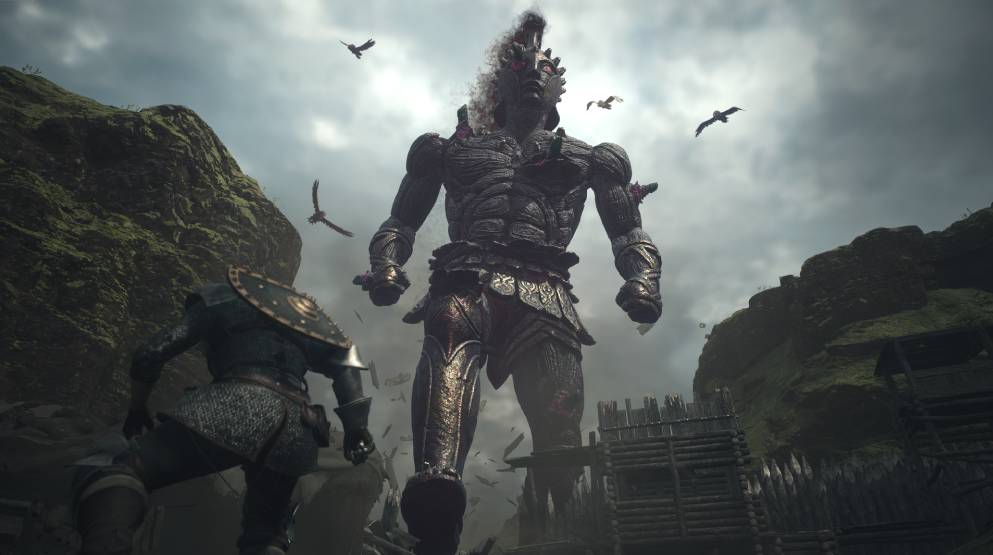Highlights:
- Fast travel is a contentious issue within open world games.
- Dragon’s Dogma 2 director Hideaki Itsuno explained why he is keen to avoid trivializing the world.
- Fast travel can make the game feel less immersive and take away from the sense of exploration.
- Fast travel also makes it easier to avoid encounters with enemies and other obstacles.
- Players can miss out on unique experiences and encounters if they fast travel too much.
- Itsuno wants players to feel the consequences of their choices and the impact of their decisions.
- By making travel more challenging and time-consuming, the world of the game becomes more meaningful and the player’s actions have more weight.
- Itsuno believes that fast travel should be earned through exploration and discovery, rather than just being handed to the player.
- By limiting fast travel options, players are forced to engage with the world and its inhabitants.
- The director also emphasized the importance of meaningful travel mechanics, such as horseback riding or sailing, to make the journey itself enjoyable.
Fast travel has long been a contentious issue within the world of open world games. On one hand, it can be a convenient way for players to quickly navigate large and expansive game worlds. On the other hand, it can make the game feel less immersive and take away from the sense of exploration and discovery. Dragon’s Dogma 2 director Hideaki Itsuno recently weighed in on the debate, explaining why he is keen to avoid trivializing the world with fast travel.
Itsuno argued that fast travel can make the game feel less immersive because it takes away from the sense of travel and exploration. In many open world games, the journey from one location to another is an integral part of the gameplay experience. It allows players to discover new areas, encounter unique characters and creatures, and uncover hidden secrets. By simply fast traveling from one location to another, players miss out on these opportunities and the world can feel less vibrant and alive.
In addition to the loss of immersion, fast travel can also make it easier for players to avoid encounters with enemies and other obstacles. In many open world games, the world is filled with dangerous creatures and challenging environments. By being able to instantly teleport to any location, players can bypass these challenges and miss out on the thrill of overcoming them. This can lead to a less satisfying gameplay experience and a lack of meaningful progression.
Itsuno also highlighted the fact that fast travel can lead to a loss of unique experiences and encounters. In many open world games, there are hidden side quests, rare items, and interesting characters that can only be found by exploring the world. By fast traveling from one location to another, players may miss out on these opportunities and the game can feel less rewarding. Itsuno wants players to feel the consequences of their choices and the impact of their decisions, and fast travel can undermine this sense of agency.
Instead of fast travel, Itsuno believes that players should earn their ability to travel quickly through exploration and discovery. By making travel more challenging and time-consuming, the world of the game becomes more meaningful and the player’s actions have more weight. Itsuno wants players to feel a sense of accomplishment when they reach a new location or uncover a hidden secret, and fast travel can cheapen this sense of achievement.
In addition to limiting fast travel options, Itsuno also emphasized the importance of meaningful travel mechanics. For example, instead of simply teleporting from one location to another, players could ride a horse or sail a ship to reach their destination. This not only makes the journey itself more enjoyable, but also adds another layer of immersion to the game world. By engaging with the travel mechanics, players become more connected to the world and its inhabitants.
Conclusion: Director Wants to Avoid Fast Travel in Open World
In conclusion, fast travel is a contentious issue within open world games. While it can be a convenient way for players to navigate large game worlds, it can also make the game feel less immersive and take away from the sense of exploration and discovery. Dragon’s Dogma 2 director Hideaki Itsuno believes that fast travel should be earned through exploration and discovery, rather than just being handed to the player. By limiting fast travel options and emphasizing meaningful travel mechanics, Itsuno wants players to engage with the world and its inhabitants, and feel a sense of accomplishment and agency in their journey.




